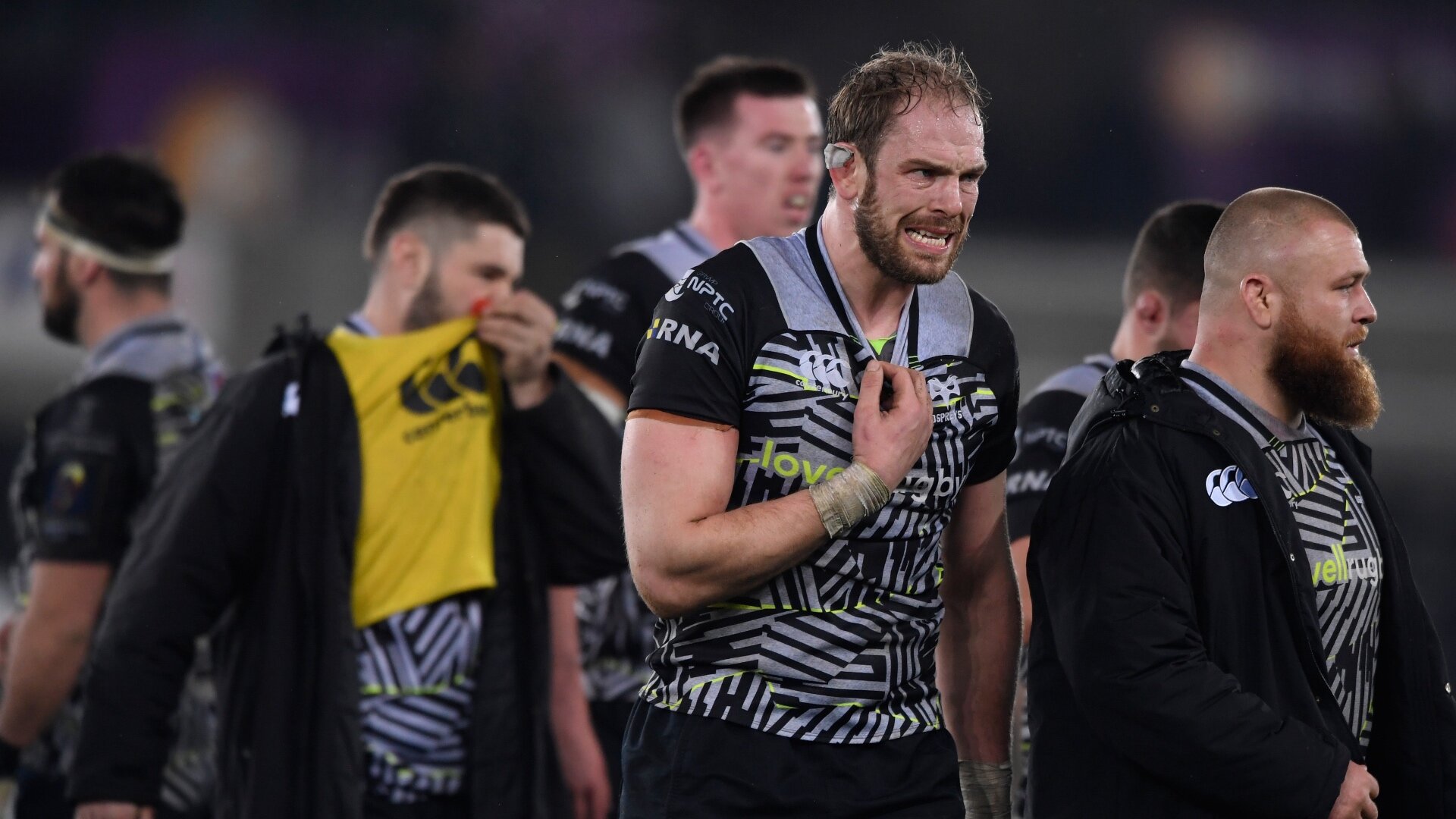Ospreys: From brink of extinction to playoff-bound in a season?

After the 2018/19 Guinness PRO14 playoffs were an all-Irish, Scottish and Italian affair, it’s fair to say it was a season that Ospreys and other Welsh regional fans will not look back on fondly.
The Scarlets looked well off their title-winning and table-topping form in 2016/17 and 2017/18 respectively, the Cardiff Blues had their moments but ultimately fell short, and the Dragons were warily watching their back, as they finished just four points above the Southern Kings in Conference B.
The Ospreys had the most to celebrate, as they beat the Scarlets in the qualifier for the 2019/20 Heineken Champions Cup, ensuring that they would be the only Welsh side in the top tier of European competition this coming season.
Discounting the adrift Dragons, Wales’ three other regions posted a combined record of 32 wins and 31 losses in the PRO14 last season, accurately portraying their positions as mid-table teams. They were all capable of taking scalps, but none had the consistency or depth to flourish across the entire season and challenge the competition’s established powerhouses.
Unfortunately for the Ospreys, celebrations over the positive trajectory of their season were short-lived, as stories broke that the WRU were looking to merge the region with their local rivals, the Scarlets.
After a startling back and forth that seemingly could only take place in professional rugby, the Ospreys confirmed that they would not be merging with the Scarlets, something which was backed up shortly after by the Professional Rugby Board.
Whether just a stay of execution or long-term salvation, the Ospreys will at least be around for the 2019/20 season.
Throw into the mix the regions’ inability to budget for the upcoming season until late in the 2018/19 campaign and the consequent effect that had on extending contracts and recruiting from outside Wales, and it’s been a challenging summer for all four sides, some of whom have lost key players in the financial uncertainty.
That said, for all the struggles, the Ospreys have assembled a pretty handy group of players for the upcoming season.
The region’s two big losses come in the form of Scott Baldwin, who has headed to Harlequins, and Sam Davies, who will attempt to resurrect the Dragons.
Wales U20 captain Dewi Lake will endeavour to step into Baldwin’s shoes at hooker and was one of, if not the most consistent performer for Wales at age-grade level over the last seven months, whilst a better replacement than Gareth Anscombe for Davies would have been all but impossible to find.
Having lost Dan Biggar in 2018 and then Davies this summer, being able to go out and snap up Wales’ starting fly-half is a coup for the Ospreys and a statement signing if ever there were one. The depth is not overflowing behind Anscombe, with Luke Price the only established option unless they want to use James Hook there, but if Anscombe can be managed in the Champions Cup, where the Ospreys may struggle to be competitive this season, he could be a difference-maker for the region in the PRO14.
The arrival of Shaun Venter from the Cheetahs brings valuable experience at scrum-half and will help them survive the loss of Aled Davies to Wales, as well as mentoring bright prospect Reuben Morgan-Williams.
The promotion of Tiaan Thomas-Wheeler and Kieran Williams from the academy should be exciting for Ospreys fans, with both offering high ceilings and differing skill sets to the current options at the region’s disposal. Alongside Hook, Owen Watkin, Scott Williams and Cory Allen, the Ospreys may very well have the deepest and most versatile midfield in the competition.
Rory Thornton’s departure is disappointing in the second row, although with Alun Wyn Jones signing on for another two years and Adam Beard coming to prominence over the past two years, opportunities were limited for the former Wales U20 captain.
If there is one area of the squad, on paper, where you would be critical, it’s arguably among the props. Although there are PRO14-calibre options there who can help the Ospreys have a productive season, the depth is thin behind them and a couple of key injuries could create plenty of problems for the region.
Despite that, the Ospreys do look in a good place to build upon their 2018/19 season and push forward in 2019/20.
Often the trend in Welsh rugby is of losing established players to better money on offer in England and France and plugging those gaps with promising academy players or bargain signings from abroad. This keeps them competitive but prevents them from being able to build and genuinely challenge the stranglehold that the Irish provinces have on the competition.
The Scarlets and Glasgow Warriors have both had their moments over recent years, but it’s hard to escape the fact the competition has had an Irish winner in five of the last seven seasons.
With the Ospreys being able to welcome up their academy promotions as reinforcements this year, rather than simply replenishing the player pool, the Swansea-based side look to be a strong candidate for the playoffs this coming season. By being drawn in a conference with Leinster, Ulster and Glasgow Warriors, they will certainly be battle-tested, should they make it.
As four-times champions of the competition, the Ospreys are somewhat of a sleeping giant and whilst that conference will surely push them to their limits, there are signs that they may be beginning to rouse.
If their squad can escape the Rugby World Cup relatively unscathed and they can make the most of their considerable depth in the back row and midfield, the Ospreys could be one of the teams to watch over the next 10 months.
Watch: RugbyPass’ latest exclusive documentary – ‘Nadolo’

































